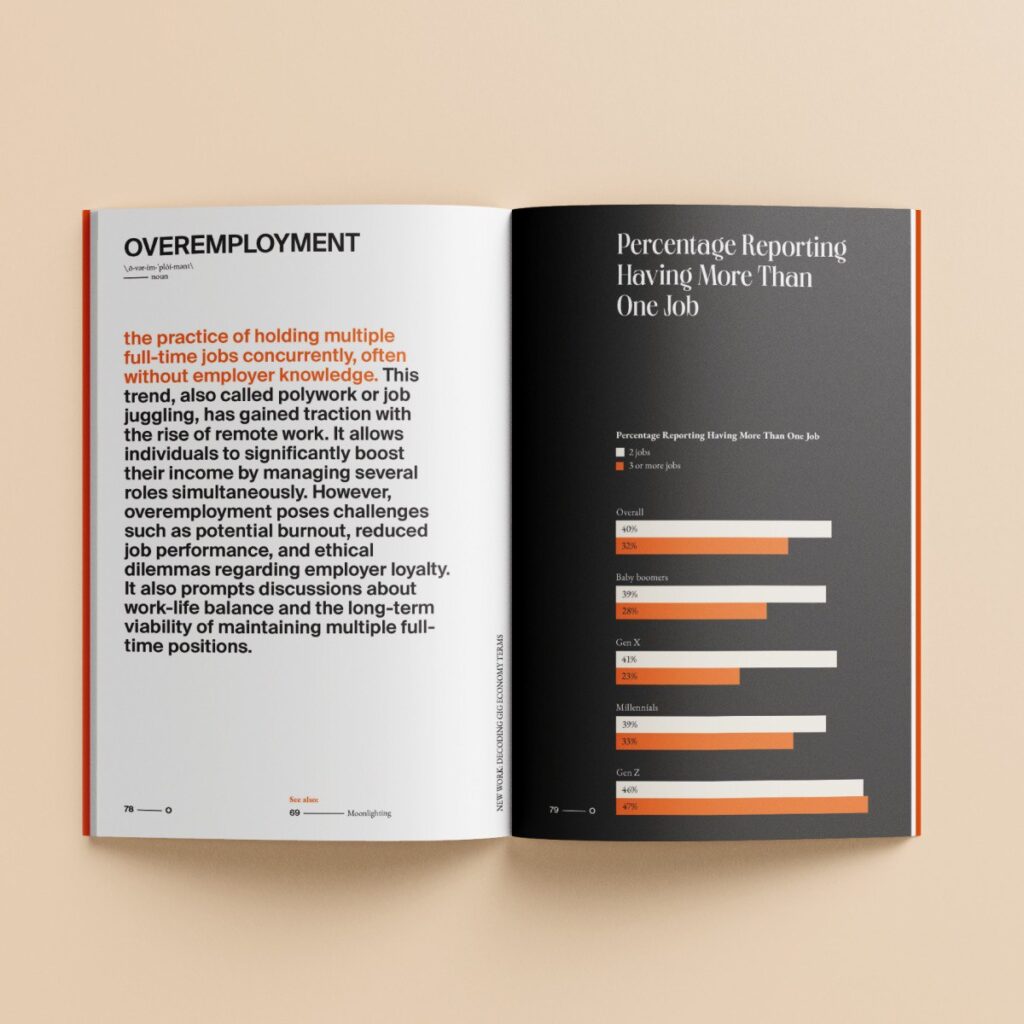 The gig economy: I’ve been involved in it since 2010, and I love it. But understanding how it works, who is a contractor and who is an employee, and what a “permalancer” is can be confusing.
The gig economy: I’ve been involved in it since 2010, and I love it. But understanding how it works, who is a contractor and who is an employee, and what a “permalancer” is can be confusing.
Fortunately, Mellow’s new book, “New Work: Decoding Gig Economy Terms,” can help you navigate the new world of work.
The Gig Economy for 2025
While no one can predict the future, everyone agrees that the gig economy isn’t going away. The World Bank estimated that there were 435 million gig workers globally in 2022. That number is undoubtedly growing. Add to that, some people aren’t “gig” workers but want to work remotely with the flexibility of a gig worker, and you have a very different world of work than we had in the 2010s.
Gig work is no longer a “jack of all trades” type of work. Plenty of gig workers are highly skilled and experts in their fields. Startups Magazine predicts that “by 2025, high-skilled freelancers in fields like AI, cybersecurity, and healthcare are expected to form a larger part of the workforce, seeking autonomy and diverse opportunities.”

Your company probably uses contractors, consultants, or other gig workers, even if you’re unaware. The cleaning service you hired? There may well be a gig worker who shows up to scrub your floors. The HR consultant you called? She is probably a self-employed gig worker with a mix of long (permalancer!) and short-term contracts. And, the person who delivered your lunch? A gig worker.
Understanding the new world of work
Each country has different rules surrounding contractors and traditional employees. In the United States, there are strict rules regarding who a contractor is and who an employee is. A general rule of thumb is that if you provide equipment, control where and when someone works and you are their only client, they are a legal employee and should be treated and paid as such.
You can have a workforce where some people are independent contractors, some are contractors who are legal employees of another business entity, or you can have regular employees. Each business structure has its own advantages and disadvantages.
If you use a lot of contractors and freelancers you have the freedom to expand and contract rapidly, depending on market conditions. But, no matter how much you loved that freelancer’s work, if you don’t get on their calendar soon, you may not be able to hire them for the next project! Their time is their own.
You can place more restrictions on an employee and require that they focus on your business from 9:00 to 5:00 Monday through Friday (or whatever schedule you want), but even with “at-will” employment, you can’t just quickly terminate someone if their work becomes a bit substandard.
What about tapping into a global market?
The world is smaller than ever, with our ability to communicate instantly with just about every corner of the globe. And while laws surround who can work in each country, there are ways for your business to go global.
With the use of companies like Mellow, you can hire someone from just about anywhere and let them handle the the ins and outs of regulations and pay with various laws. Otherwise, you may find yourself in trouble with the law of a country you’ve never even visited.
You can find freelancers everywhere–I’ve worked with freelancers in India, Brazil, Malaysia, and Nigeria.
What you can’t do is keep your employee on US payroll and have them go work in Canada for six months. That will get you in a whole bunch of trouble, even if the employe can legally work in Canada.
Navigating this new world can be difficult, but it also opens up all kinds of extra talent for you to choose from. You don’t have to make a long-term commitment to be a great gig worker, and you aren’t limited to people within a 45-minute commute from your office. It’s a whole new world of work.


